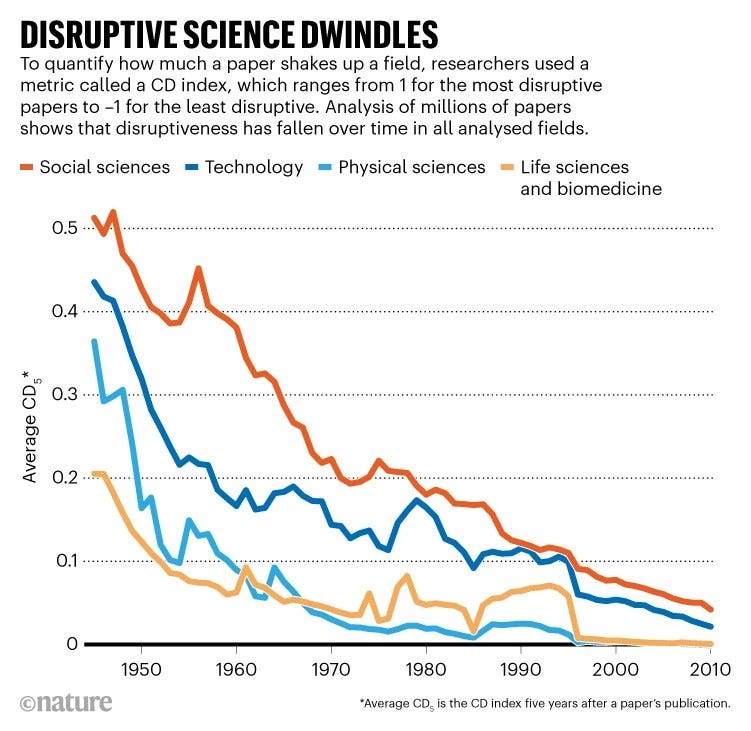Modern science wisdom from Paul R. Ehrlich:

If you can’t see it, it reads:
60 Minutes extinction story has brought the usual right-wing out in force. If I’m always wrong so is science, since my work is always peer-reviewed, including the POPULATION BOMB and I’ve gotten virtually every scientific honor. Sure I’ve made some mistakes, but no basic ones
I am happy to agree with any man where I can. So that I second Ehrlich’s acknowledgment that he has not only virtually, but also in Reality, had nearly every scientific honor. Rarely has one scientist been as feted, awarded, praised, and, the highest compliment of the all, emulated as Ehrlich.
I’m also with him that he has made mistakes—as do we all. We differ only on our understanding of “basic.”
But that is nothing. Because most importantly, I want to convey my hearty agreement with his deepest point—his philosophy of science: “If I’m always wrong so is science, since my work is always peer-reviewed”.
According to Ehrlich, and his peers, the world should have ended by now because of environmental catastrophe. Since he was wrong, so was science. And science likely was wrong because of peer review, which we might also call peer acquiescence or peer enforcement, just as Ehrlich implied.
Thus Ehrlich, given Ehrlich’s admitted errors, he agrees with us, that peer review is one of the big reasons science goes bad.
It is a more-or-less obvious argument that the more peers there are, all of whom are publishing science papers, the more peer review there is. And therefore the greater force there is driving science towards the mean, which is to say average, beliefs.
Ehrlich confirmed this not only by blaming his peers on his mistakes, but by acknowledging how those very same peers gave him almost every award there is. And that means low-level peers wanting to become high-level peers, which is not unreasonable, many would seek to emulate Ehrlich, as they indeed do. But that means emulators in turn make the same kind of mistakes Ehrlich did. And enforce it all with peer review.
What makes this is all more interesting is that right on top of Ehrlich’s comments came a Nature editorial—and peer-reviewed paper!—on the theme “‘Disruptive’ science has declined — and no one knows why.”
That “no one” is tribal. The writer meant no one he knew. For I venture to say that I know, and that regular readers know, why science is suffering. But we—you and I, dear readers—are not peers and so not in the counted class.
The article’s subhead is true: “The proportion of publications that send a field in a new direction has plummeted over the past half-century.”
Now enforced conformity by peer review is certainly not the only reason innovation is stunted, nor even, maybe, the most important. But it is definitely one reason, as Ehrlich confirmed. The opening sentence confirms this, indirectly: “The number of science and technology research papers published has skyrocketed over the past few decades…”
Regulars know I say this result is due to the Expansion Team effect. The more scientists there are, because of the increasing money poured into science, the more work is produced, but the less the average value of the work is worth—and the more peer review there is. This is almost a mathematical theorem.
Here’s the proof, using the authors’ figure:
Their “disruptiveness index” (CD) is yet-another citation formula, sort of like the average number of citations a paper receives. Which, of course, goes down at least because of the increasing number of low-value to no-value papers.
And the number of no- and low-value papers naturally increase the more scientists there are, which is at least a factor of how much money is pumped into the system.
It’s not only citations, but, in what turns out not to be a surprise in retrospect, the average number of unique words in papers has the same declining shape! Papers become formulaic under peer review. It’s only surprising “AI” hasn’t been used to push out papers.
There is no cure for this, save cutting back on the money and number of scientists (mostly in the academy), hence the amount of what is called research.
And that’s not going to happen; at least, not anytime soon.
Buy my new book and learn to argue against the regime: Everything You Believe Is Wrong.





Oh brother this Malthusian monster Ehrlich just keeps on ticking.
The slow death of science. Rather reflective of western culture, sadly.